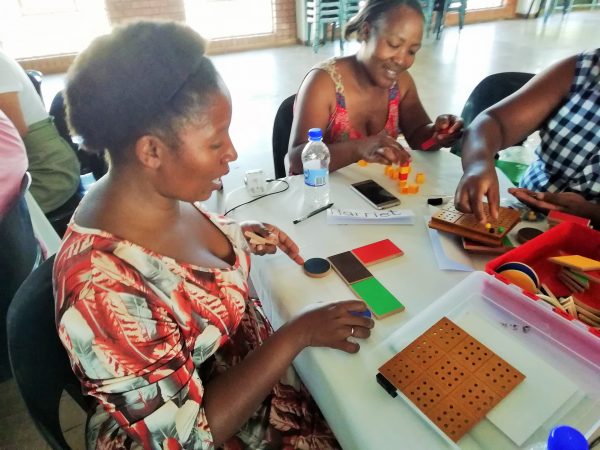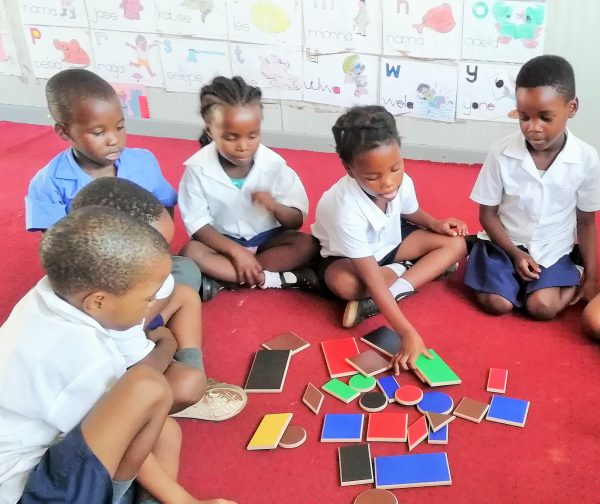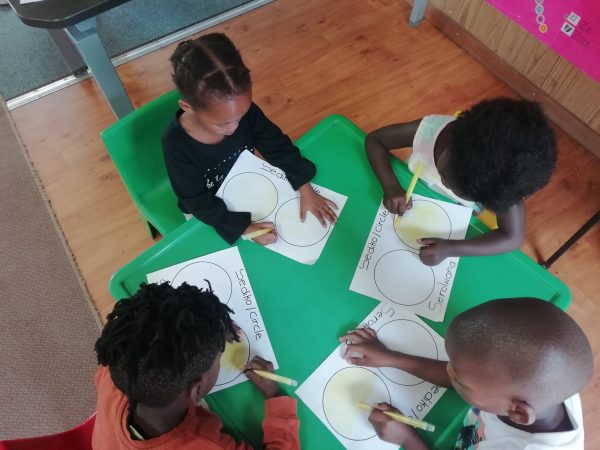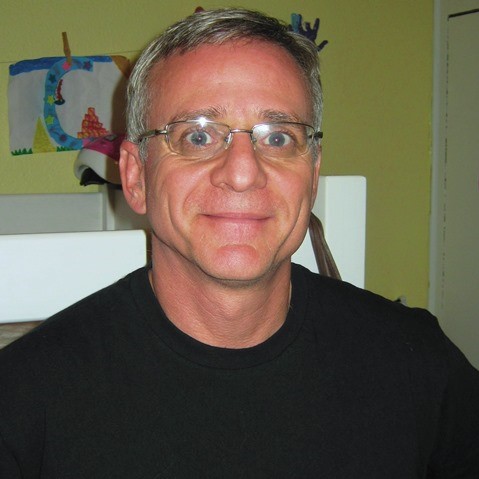Voices from the Sylff Community
Nov 24, 2020
The State of South African Education: Covid-19 Implosion Brings Good News and Bad News
How much worse will things get in our education system? Teachers are familiar with the effects of extended periods of downtime, like that during the Covid-19 lockdown. The longer children are out of school, the more difficult it is to get them back into the routine and into the headspace needed for learning.
I have some good news and, unfortunately, some bad news too. Which would you like to hear first? Most people want the bad news first so that they can move on to the good news and end on a high. And this is the formula I will use. The bad news is, unfortunately, very bad: Take cover! Tsunami warning for the SA education system! Get ready for waves of poorly educated children exiting the education system over the next decade or longer.
But how much worse could things really get in the education sector? Have we not already reached rock bottom? No, I suspect that we still have some way to go. One of the unintended consequences of the Covid-19 lockdown in South Africa has been to push our already ailing education system to an unprecedented low.
“Children are not the face of this pandemic. But they are at risk of being among its biggest victims… in some cases, by mitigation measures that may inadvertently do more harm than good. The harmful effects of this pandemic will not be distributed equally; they are expected to be most damaging for children in the poorest countries, in the poorest neighbourhoods, and for those in already disadvantaged or vulnerable situations.” – United Nations Policy Brief, 15 April 2020.
Covid-19 will naturally affect those who are the most disadvantaged to the greatest extent. This is also true in the field of education. The renowned psychologist Edward Thorndike’s “Law of Learning” provides further support for this. It states that the more one learns, the more learning one can achieve in the future. Learning generates further interest in learning.
In fact, at a biological level we know that being exposed to interesting ideas and being curious triggers the human body’s narcotic-like dopamine chemicals to flood the brain, a positive stimulus that guarantees the individual would want to recreate these experiences.
Conversely, one who has not been exposed to learning opportunities would be less inclined to seek out cognitive stimulation. Thus, children who are described as educationally disadvantaged and were physically locked out of the education system and left to their own devices during the Covid-19 crisis are at much greater risk of not making adequate school progress in the future.
What do we know about the effects of extended periods of downtime on children’s learning? Teachers are very familiar with such scenarios as they often see a tailing off of children’s learning after long holidays and even long weekends. The longer children are out of school, the more difficult it seems to be to get them back into the routine and into the headspace needed for learning.

Teachers at the training working with the BCP materials.
In these situations, teachers constantly have to revert back to previously taught content. These learning setbacks might not be permanent, but they impact future learning.
Human cognitive development is a complex and individual process. How do we start to intervene in it?
The good news is that we have accumulated a lot of knowledge about this process and that cognitive science does have a fairly good grasp of the fundamental principles that guide effective teaching and learning.
Most importantly, we know that human beings are cognitively modifiable, thanks to the pioneering and extraordinary work of the late cognitive psychologist Professor Reuven Feuerstein. The implications of this seemingly unassuming statement are profound for educators and for children not already in the learning loop. The notion of cognitive modifiability gives substance to the cliché that “all children can learn”. For too long we have been dominated by a deterministic, all-or-nothing view of human cognition; either you have the “smarts” or you don’t.

Children who are working with the BCP materials.
This recognition of cognitive modifiability has resulted in the development of cognitive intervention programmes, such as Instrumental Enrichment, Bright Start and Basic Concepts Programme. While traditional curative (remedial) programmes aim to close gaps in content learning, cognitive programmes aim to promote the growth of cognitive structures that are needed for higher order and abstract reasoning.
But is it possible to enhance the development of cognitive processes inside the classroom and can teachers do this? It is our experience that emergent cognitive structures can be enhanced and teachers can be trained to become mediators of learning. Mediated learning differs vastly from traditional “chalk-and-talk” pedagogical approaches on both a philosophical as well as humanistic level.
Human mediators are caring, engaged, open, interactive and intensively involved with their children in the classroom. Young children happen to need these kinds of engagements to free up their involvement and participation. Children who take risks and share their thinking and are able to express their ideas are set on a path to improve their thinking, to reflect on it and consider the views of others.
So why are such cognitive educational approaches not being used more in learning institutions, particularly for young children who are not already engaged in learning and might have cognitive vulnerabilities?

Children who are busy with an activity related to the programme
The Basic Concepts Programme is being extended across Grade R classes throughout the Northern Cape. The Northern Cape Department of Education has been forward-looking in helping to establish solid cognitive foundations needed for enhanced learning. There is an understanding that cognitive development and the school curriculum are not mutually exclusive activities, but both are integral. In a pilot study we have found almost universal improvements in school readiness of children who have been exposed to this cognitive programme during their school day.
The disruptions to teaching and learning in these very unsettled Covid-19 times might, in fact, allow those invested in education to pause, take stock and re-evaluate our understanding and approaches.
How does our practice as educators align with what we know about learning from cognitive science, and are we following the best evidence-based practices that will help children to improve their learning? It might be that the unintended outcome of the crisis also mobilises those involved in education to develop a range of special interventions to re-establish an interest in learning.
All children can learn and make educational progress, but it might be that some children need a more thoughtful, intentional and mediational approach to successfully re-enter the educational mainstream.
This article acknowledges the Douglas Murray Trust and Ryoichi Sasakawa Young Leaders Fellowship Fund for their generous support of the work done by the author with the Northern Cape Department of Education.
* * *
Reprinted, with a lead by the author, from DAILY MAVERICK which is one of the largest and most credible online newspapers in South Africa; https://www.dailymaverick.co.za/opinionista/2020-11-02-the-state-of-south-african-education-covid-19-implosion-brings-good-news-and-bad-news/.
